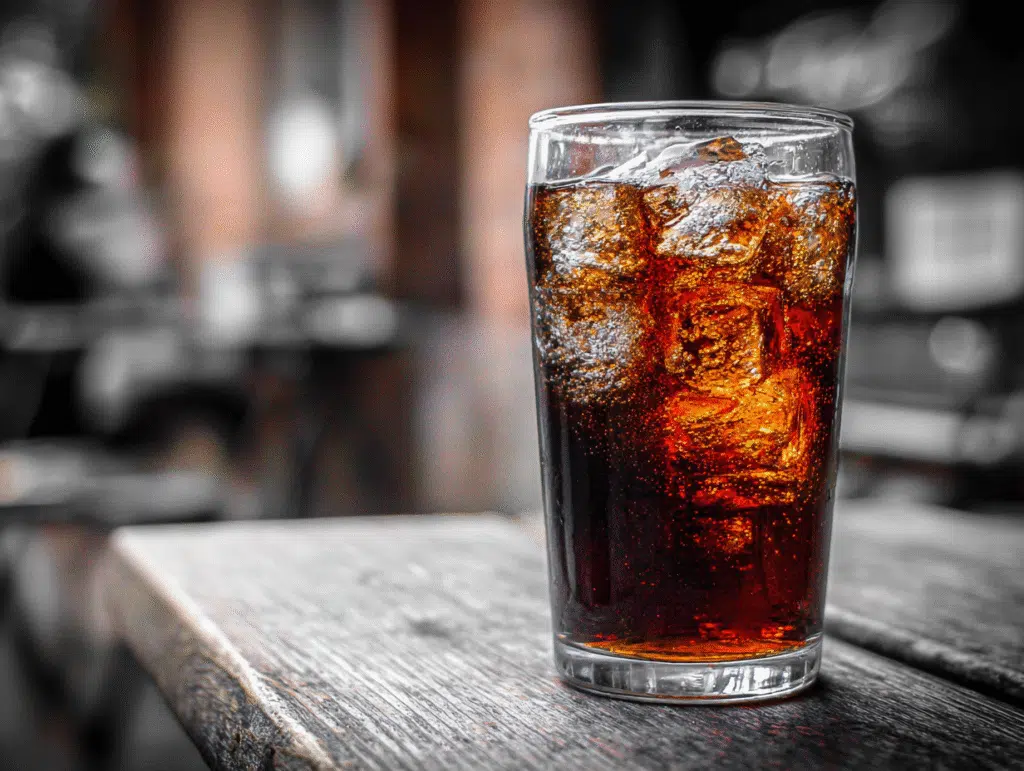Introduction
This Is What Happens to Your Body When You Drink Diet Soda may surprise you. While many people choose it to cut down on sugar and calories, the truth is that these artificially sweetened drinks can have a variety of effects on your health. From your brain to your metabolism and even your gut, it interacts with your body in ways that aren’t always obvious. In this article, we’ll explore the short-term and long-term impacts, what science says about its risks and benefits, and how to enjoy it mindfully without compromising your health.
What Exactly Is Diet Soda?
Diet soda is a low-calorie or zero-calorie alternative to regular soda. Instead of sugar, it uses artificial sweeteners such as:
How Diet Soda Affects Your Body
1. Immediate Effects After Drinking
Within the first 30 minutes, you may feel:
- A burst of sweet taste without calories, which can trick your brain into thinking it’s getting energy.
- A slight increase in alertness from caffeine (if the soda contains it).
- Stimulation of the dopamine reward system, giving you a “sugar-free” pleasure hit.
2. Brain and Cravings
Artificial sweeteners may confuse the brain. Because your body tastes sweetness but doesn’t get calories, it may:
- Increase sugar cravings later in the day.
- Cause compensatory eating, meaning you might consume more food elsewhere.
- Alter dopamine pathways, affecting how your brain responds to sweetness over time.
3. Gut Health and Microbiome
Emerging research shows that diet soda can:
- Disrupt gut bacteria balance, particularly with sweeteners like saccharin or sucralose.
- Lead to digestive discomfort in sensitive individuals.
- Potentially impact glucose tolerance, making your body less efficient at managing blood sugar.
4. Metabolism and Weight Management
While diet soda doesn’t have calories, studies suggest:
- Some people maintain or lose weight by replacing sugary drinks with diet soda.
- Others may experience weight gain due to increased cravings and compensatory eating.
- Long-term consumption may affect insulin sensitivity in certain populations.
5. Teeth and Bone Health
Diet soda is often acidic, which can:
- Erode tooth enamel, even without sugar.
- Contribute to weaker bones over time if consumed excessively, since acidity may affect calcium balance.

Step-by-Step Guide: How to Enjoy Diet Soda Safely
If you don’t want to give it up completely, here’s how to drink it in moderation:
Step 1: Limit Your Intake
- Stick to 1 can per day or less.
- Alternate with water, sparkling water, or unsweetened tea.
Step 2: Protect Your Teeth
- Use a straw to reduce enamel exposure.
- Rinse with water afterward.
- Avoid brushing immediately after drinking (acid weakens enamel temporarily).
Step 3: Support Your Gut Health
- Add probiotic-rich foods like yogurt, kefir, or sauerkraut to your diet.
- Reduce overall artificial sweetener load by choosing natural alternatives occasionally.
Step 4: Balance With Whole Foods
- Pair diet soda with high-protein, fiber-rich meals to reduce cravings.
- Avoid relying on it as your primary beverage.
Practical Alternatives
If you want the fizz without the risks, try:
- Sparkling water with lemon or lime
- Infused water with cucumber, mint, or berries
- Herbal iced tea without added sugar
- Kombucha (choose low-sugar varieties)
These options give you refreshment without as many health concerns.
Frequently Asked Questions (FAQ)
1. Is diet soda worse than regular soda?
Regular soda has sugar and calories that can cause weight gain and increase the risk of diabetes. Diet soda avoids calories but may affect cravings, gut health, and metabolism. Neither is ideal, but it is often a better choice in moderation.
2. Can soda cause weight gain?
Indirectly, yes. While diet soda itself has no calories, it can increase sugar cravings and lead to overeating. For some people, this results in weight gain.
3. Does diet soda affect blood sugar levels?
Most artificial sweeteners don’t spike blood sugar directly, but they may affect insulin sensitivity and gut bacteria, which can influence long-term blood sugar control.
4. Is diet soda bad for your teeth?
Yes, it is acidic and can erode enamel over time, leading to cavities and sensitivity—even though it doesn’t contain sugar.
5. How much diet soda is safe per day?
Most health experts suggest occasional consumption (1 can or less per day). Prioritize water and healthier beverages instead.
6. Are there healthier substitutes for diet soda?
Yes, try sparkling water, herbal teas, or flavored water without artificial sweeteners. These provide refreshment without the same risks.
Conclusion
So, this is what happens to your body when you drink diet soda: you get a sweet, calorie-free taste but also expose yourself to potential downsides for your brain, gut, metabolism, and teeth. The good news is that with moderation and smart choices, diet soda doesn’t have to derail your health goals.






